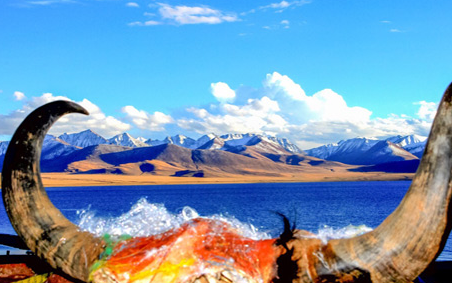Understanding how to pronounce “Namtso” is essential for travelers, language enthusiasts, and anyone interested in Tibetan culture. Namtso, meaning “Heavenly Lake,” is one of Tibet’s most breathtaking destinations, attracting visitors from around the world. Mastering its pronunciation can enhance your experience and connect you more deeply with the local culture.
How to Break Down the Pronunciation
To pronounce “Namtso” correctly, it’s important to break it down into its syllables. The first syllable, “Nam,” rhymes with “calm” and is pronounced with a soft “a” sound. The second part, “tso,” sounds like “ts-oh,” where the “ts” is pronounced like the “ts” in “lots.” Putting it all together, you get “Nam-ts-oh.” Practicing this pronunciation will help you feel more confident when discussing the lake or when engaging with locals.
Cultural Significance of Namtso
Namtso is not just a beautiful lake; it holds deep cultural significance for Tibetan Buddhists. The lake is considered sacred, often serving as a pilgrimage site for locals. Many believe that the clear waters have spiritual properties, and the stunning backdrop of the Nyenchen Tanglha mountain range adds to its enchantment. Understanding this cultural context makes it even more meaningful to pronounce “Namtso” correctly on your visit.
Tips for Remembering the Pronunciation
If you find it challenging to remember how to pronounce “Namtso,” try associating it with familiar sounds or words. You might think of it as “Nam” like in “name,” followed by “tso” that rhymes with various English phrases like “so” or “go.” Engaging with Tibetan music or language apps can also help reinforce the pronunciation through auditory learning. The more you practice, the more natural it will become, allowing you to strike up conversations about this stunning lake during your travels.
In conclusion, mastering the pronunciation of “Namtso” enriches your travel experience and helps you connect with Tibetan culture. The next time you find yourself discussing this heavenly lake, you’ll be well-prepared to say its name with confidence. Why not dive deeper into Tibetan language or culture? You might discover even more fascinating insights that enhance your understanding and appreciation.




